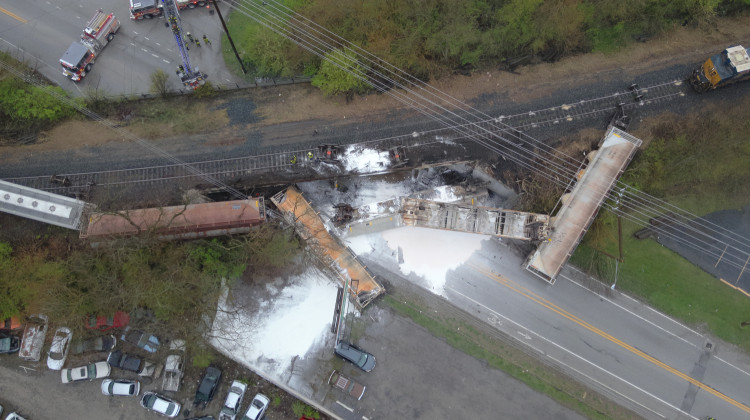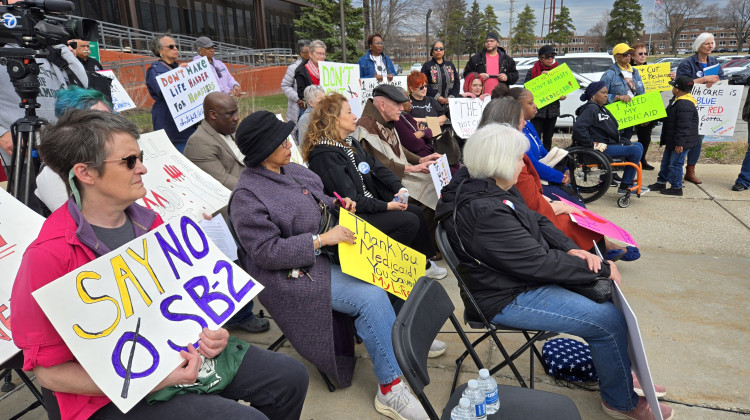A local farmer and the Flanner House Community Center are gearing up for a bountiful harvest in Indianapolis. They teamed up to develop the state’s largest urban farm in one of the city’s biggest food deserts—areas that lack access to fresh vegetables and fruits.
Jonathan Lawler with Brandywine Creek Farms says there are too many people going hungry,
“it would take 15 hundred acres surrounding Indianapolis just to meet the needs of the food industry here growing whole produce. Something I would love to see farmers do here is start networking a lot more together. Stop looking at each other as competition because nobody is competition. Nobody is providing enough of any one product to meet the demand that Indianapolis or central Indiana is putting on it”
Lawler turned about half of his 36-acre Hancock County farm into a nonprofit operation --growing produce for people in need.
“the problem with local food right now is that it is very expensive. We would like to see local food affordable because it is part of the access issue. A lot of people talk about food deserts and I totally agree not having not having a grocery store makes a big difference, but when tomatoes are three dollars a pound or four dollars a pound or cucumbers are a dollar each-that’s also an accessibility issue because people cannot afford to buy this produce”
Flanner Farms will sprout this year on the 2½-acre campus of Flanner House. It's not a community garden, but instead a working farm. A weekly farmers market will offer a portion of the farm's organic produce at below-retail prices.
“there will be entertainment, different market gardeners from the northwest area, actual residents who are gardening that will help to support as kind of a hub for urban gardening, as well as urban agriculture. We will be selling our own produce. And because we are concerned with scale, we will be able to sell at a reduced price” says Mat Davis, with Flanner House.
Davis is also on the board of the Indy Food Council.
Brandywine Creek farms is planting around 60 thousand tomato plants this spring, in addition to 30 thousand plants in one area just within the city of Indianapolis. Lawler’s hope is to show people that a small scale farm can make a difference in peoples’ lives.
 DONATE
DONATE







 Support WFYI. We can't do it without you.
Support WFYI. We can't do it without you.